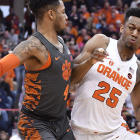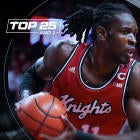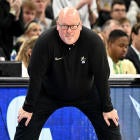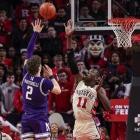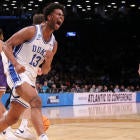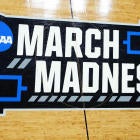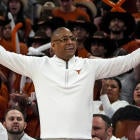In recent days/weeks, a lot of programs have been steadied by the return of underclassmen who flirted with the NBA pre-draft experience only to do as expected and head on back to campus.
But in an age of basketball economical evolution, now with players afforded more avenues and opportunities to make better money whenever they leave school, the future of college basketball's testing-the-waters period is likely to yield fewer men who keep course in college vs. trends of the previous two decades. Even if that means chancing a G League wage, fighting for a two-way contract or knowingly taking on an overseas career, the lure of "playing pro" is enhancing by the year.
Meaning there will only be a handful of surprising decisions each year in which a player opts to return to school.
This year? Tyus Battle is one such player.
And he might be the most important returnee in college basketball.
Syracuse is coming off a Sweet 16 appearance that was pulled out of a hat after many a pundit believed the Orange were NIT-bound following a 20-13 campaign that ended with a tie for 10th in the ACC. Instead, Jim Boeheim's team got an at-large bid and broke through to the second weekend for the second time in three years. Battle was the centerpiece of Syracuse's success last season. Viewed as a fringe first-rounder at best, Battle was nonetheless expected by many to leave after logging two seasons in central New York.
Losing him would have likely punted the Orange from most if not all preseason polls, and replacing his production and minutes would have been hellish on Boeheim's coaching staff.
Battle was, and is, so important to Syracuse because he was literally the most reliable, consistent player in the sport last season. He averaged 19.2 points (among the best in the ACC), but it's not just points and production, it's availability. Battle averaged 39 minutes per game. He played in 96.2 percent of Syracuse's minutes -- more than any player in college basketball.
No player in the past 15 years had played that many minutes and gone on to be drafted. The closest was D.J. Augustin, who was taken ninth in the 2008 draft and played 92.9 percent of Texas' minutes that season. To get an idea of how Battle going the other way could have impacted Cuse, consider that Texas followed up the Augustin era by dropping from a 2 seed to a 7 and winning eight fewer games.
In 2009, Chase Budinger -- the 44th pick in that year's draft -- was on the floor 93.7 percent of the time for Arizona. The following season, the Wildcats failed to make the NCAA Tournament for the first time in 26 years; it was Sean Miller's first season in Tucson.
Another comparison: In 2011, Kemba Walker played 92.4 percent of available minutes for UConn as he pushed the Huskies to a national title. Walker went ninth in that draft. The following season, the Huskies went 20-14 and were a 9 seed.
Syracuse will have to atone for losing Battle's production and endurance at some point, but better that it will wait at least one more year. We could come to discover that him returning to the Orange not only winds up being the difference between make the 2019 NCAA Tournament or not, it could be the factor in getting SU back to the second weekend of the Big Dance.
Best of all, he won't go it alone. Boeheim coached with probably his thinnest bench ever last season. Syracuse returns Oshae Brissett and Frank Howard for 2018-19, but get this. As if Battle's 96.2-percent minutes-played clip wasn't wearing enough, Howard was on the floor 94.8 percent of the time, Brissett 94.1. That's unreal, if not unprecedented: All three players ranked in the top five in minutes played in the sport. Boeheim was forced to run those guards ragged, but it ultimately paid off with the 19th Sweet 16 trip of his career.
For all the time Battle logged, he needed it as much as Syracuse needed him. Battle shot only 45.2 percent from 2-point range and was 32.2 percent from beyond the arc (he took 6.5 3-point attempts per game). That lack of efficiency was probably his biggest hindrance in standing out for scouts and general managers not just during the season but in recent weeks at workouts.
But for the purposes of college basketball and college basketball alone, a power program should return to relevance next season. Battle's choice is all the more important, as it comes a week after Syracuse lost out to St. Bonaventure (that is stinging for any Orange fan) on a fledgling center named Osun Osunnniyi.
This trio, in addition to returning big Paschal Chukwu, may wind up being as tight of a nucleus as we see on any top 25 team. And that's just what Syracuse should be. Battle will compete for preseason All-American status and the Orange should be in the polls when games get going in November. Come March? Expect SU back in the big bracket. That would mark the 34th time Boeheim coached the Orange to the NCAA Tournament.












